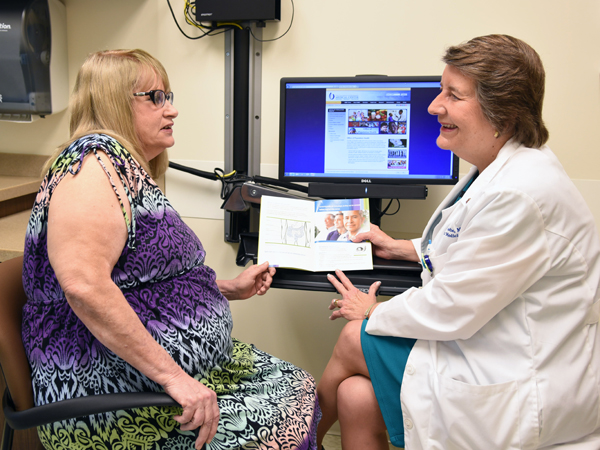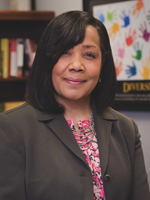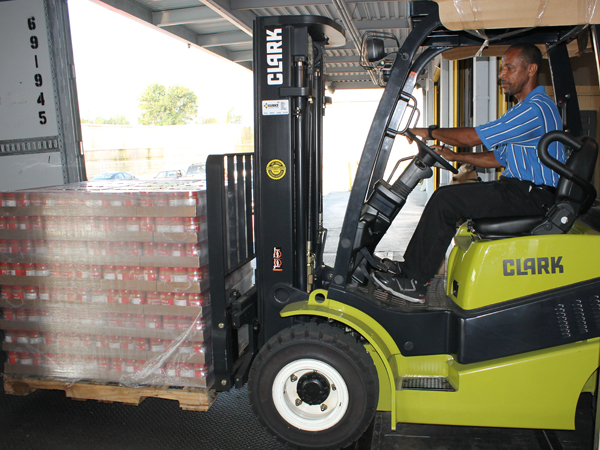To care for whole patient, look at whole picture

It's not unusual - sometimes, the norm - for a patient's medical problem to be caused by factors that are entirely non-medical.
A person's asthma, for example, could be triggered by animal dander, mold, cockroaches, dust mites or other airborne allergens at his home. A child could suffer a deep, jagged cut because she played in a dangerous area, because she had no safe parks, because her parents couldn't afford to live in a better neighborhood.
A new program to be offered at the Jackson Medical Mall through the Myrlie Evers-Williams Institute for the Elimination of Health Disparities will connect families and individuals to community resources that will help them address root environmental factors that are affecting their health. Set to open this fall, it's called EversCare, named after Evers-Williams for her concern that those in need get help.
"We recently conducted the RICE Bowl, and Dr. Evers-Williams was in the audience," said Dr. Bettina Beech, UMMC's associate vice chancellor of population health and professor of family medicine and pediatrics. The Rural Interdisciplinary Case Experience (RICE) Bowl is an interdisciplinary health-care competition in which UMMC students from academic disciplines ranging from law to social work collaborate in teams to address complex rural health issues.

After hearing a case example of a family struggling with finding health care, Evers-Williams "couldn't get the family out of her mind. She asked, 'Where are the resources?' She was so troubled by that. I thought, 'We've got to address this,' " Beech said.
EversCare will address the whole patient by linking them with community resources that will help them with social, economic and environmental issues impacting one or more aspects of their health.
EversCare's focus will include what's called "social determinants of health." They are economic stability, education, social and community context, health and health care, and neighborhood and environment, as defined by the federal disease prevention initiative Healthy People 2020.
"It's the upstream factors that we're trying to address, and you can't do that without community resources," Beech said. "We are partnering and creating new connections."
Former Vice Chancellor for Health Affairs Dr. James Keeton and his successor, Dr. LouAnn Woodward, share in the vision of EversCare. "They have talked about us having a larger responsibility to take care of everyone, regardless of if they're a patient in our system," Beech said. "We will have improved the health in our state."
One potential community partner is the Mississippi Food Network in Jackson, which each year supplies 24.4 million pounds of food to help feed the 600,000 state residents who live at or below the poverty level. Beech is a member of MFN's board of directors and also serves as executive director of the Myrlie Evers-Williams Institute for the Elimination of Health Disparities.
"Those people are defined by the federal government as 'food insecure,' which means they don't always know where the next meal is coming from," said Dr. Charles H. Beady Jr., Mississippi Food Network's CEO.

"If they are food insecure, then they are probably dealing with other health issues," he said. "We have one of the highest rates of diabetes in the nation. People who are hungry often don't understand the difference between nutrients and calories. They sometimes eat whatever they can get their hands on, and often don't make the right food choices."
Mississippi Food Network partners with 415 agencies, including food pantries, soup kitchens and homeless shelters, to get food to the hungry. Those agencies are critically important in a state where one out of four children go to bed hungry most every night.
Even so, it's amazing how often people are oblivious to helping-hand organizations that can improve their health and their lives, Beech said. "There are other resources, such as the Barksdale Reading Institute, the mayor's job training program, shelters for abused women and their children. These things come up in medical encounters."
Beech uses as an example the philosophy of Dr. Jack Geiger, founding member and past president of Physicians for Human Rights and Physicians for Social Responsibility. Geiger decades ago created the Delta Health Center project in Bolivar County, where poverty, hunger, illness and high morbidity were commonplace.
"The last time I checked my textbooks, the specific therapy for malnutrition was, in fact, food," Geiger was quoted as saying in 1965. He wrote prescriptions for food and gave them to his Delta patients suffering from malnutrition. They took them to the local grocery, which gave them food and billed Geiger's clinic.
The national nonprofit Health Leads, which advocates a health-care system that addresses all of a patient's basic health-care needs, works in urban areas much larger than Jackson, Beech said. "But, the concept for their program has roots in Mississippi. Our (EversCare) model uses a similar approach, but it addresses the needs of diverse populations, including those living in rural and suburban areas."
The traditional role of a health-care clinic usually does not include asking questions about community resources or other social or environmental factors that can play into a patient's health and well-being, Beech said. "A physician can provide a plan to address health issues, but if patients return to the same environment that is making them sick, the likelihood of patients getting well is minimized," she said.
"We see all of these components in various patients. The challenge is that we don't always directly gather that information from all of our patients, and we make assumptions," said Dr. Diane Beebe, chair of the Department of Family Medicine.
"It's easy to say we need to ask every patient about this, but some of these areas can be very delicate, and very threatening to the patient," she said. "It might be embarrassing, or they might be perceived as being not socially acceptable.
"We have to really engage the patient to start thinking about what's impacting their health beyond just their disease. There are things you might not even think about that impact your health: physical, mental and social well-being, the places you live, accessibility you have to resources."
EversCare patients will receive primary health care locally, including at UMMC's clinics and hospitals, Beech said. "We're trying to add value by addressing the social aspects as well. Because most hospitals don't ask about social factors, we just don't know what they are. At UMMC, we are going to start asking those questions, and within our own system, we can bring resources to bear that will help."
A nurse practitioner will serve as clinic manager of EversCare, Beech said. That person can quickly detect if those getting services at EversCare also need referrals to physicians. The office will be more spacious than what you'd find at a regular clinic. Patients can make appointments or simply walk in.
"It will be very family friendly. We can spend more time with them as we refer them to resources," Beech said.
EversCare will prove a valuable training ground for Medical Center students. Both current health-care professionals and students need to be educated on how to ask their patients non-medical questions, Beebe said.
"They will learn how to work with patients and ask them questions on the front end - for example, the social history of the family," Beech said. "Health is more than just health care."
Beady said his doctoral research at Michigan State University centered on what's called "systemic intervention." That's a match for the concept of EversCare, he said.
"I was trained, from a counseling standpoint, to look at the impact the systems have on an individual, as opposed to taking an individual who has presenting problems and trying to figure out what's wrong with the person," Beady said. "We need to look at what's wrong with the system the person is in."


